After months of cold shoulder, China welcomes Antony Blinken to Beijing
Chinese officials have painted the US as most eager to meet but behind the scenes they have their own reasons for the sudden pivot to the ease in hostility.
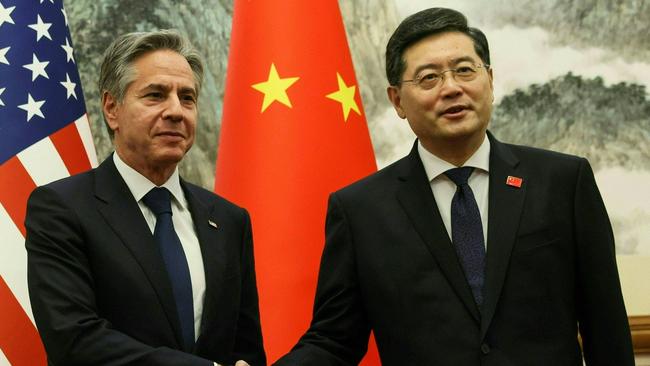
While preparing for Secretary of State Antony Blinken’s visit, China’s leadership has had its sights on two sets of audiences other than the US.
On Sunday, Blinken and Chinese Foreign Minister Qin Gang had seven-and-a-half hours of direct talks and a dinner meeting on a host of topics, with the two agreeing to work together on increasing the number of flights between the US and China, a senior state department official said.
Yet before Blinken arrived in Beijing on Sunday morning, the first visit by an American cabinet-level official since 2019, Chinese officials, state media and academics have all played up the notion that it is the US side that has been the most eager to meet.
Behind the scenes, however, Beijing has had its own reasons for detente with the US: Chinese officials have said a priority for Beijing this year is to pave the way for top leader Xi Jinping to attend an annual summit of Asia-Pacific leaders to be held in San Francisco in November -- and possibly a separate meeting with President Biden.
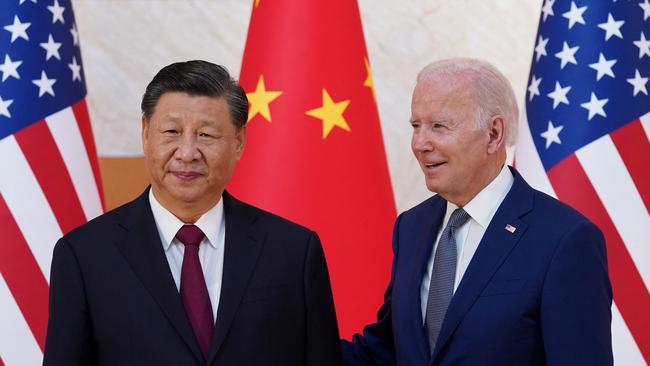
Chinese diplomats have been working to ensure the Chinese leader will receive a respectful welcome for what would be his first trip to the US since 2017.
Driving the terse Chinese messaging in the lead-up to Blinken’s visit has been the leadership’s need to explain to a domestic audience why it appears to be shifting to re-engage with the Americans after having given Washington a cold shoulder for months and blamed the US for the worsening bilateral relationship.
Upon arriving in Beijing, Blinken was greeted by the US ambassador to China, Nicholas Burns, and the director-general at China’s Foreign Ministry overseeing affairs with the US
Senior State Department officials described a large meeting, smaller session and dinner that included Blinken and Qin on Sunday as direct and productive because they said the officials sidestepped recent “distrust” and sought co-operation in a variety of areas. Blinken and Qin agreed that the Chinese foreign minister would visit the US.
Today, I met with People’s Republic of China State Councilor and Foreign Minister Qin Gang in Beijing and discussed how we can responsibly manage the relationship between our two countries through open channels of communication. pic.twitter.com/dPkd0aWQ5J
— Secretary Antony Blinken (@SecBlinken) June 18, 2023
Blinken is expected to meet Xi during the trip, as is customary with previous visits by US secretaries of state. So far, neither Washington nor Beijing confirmed the potential meeting between Blinken and Xi. He is also expected to meet executives from American healthcare, automotive and entertainment companies.
Another key audience for Chinese leaders is the US’s allies in Europe and Asia, as Beijing steps up efforts to try to prevent other countries with advanced technology from joining hands with Washington in sanctioning Chinese companies.
As competition between the US and China heats up, especially over advanced technology, the Biden administration has sought to get countries such as the Netherlands, Japan and South Korea to join with the US in limiting chip-related exports to China. Washington has also been working on restricting investments in sensitive technologies in China -- an effort that it hopes will also be supported by its European and Asian partners.
But not everyone is on board. Motivated by their own economic interests in the world’s second-largest economy, some of the US’s allies have pushed back against increasing restrictions on doing business in China and grown worried about the deteriorating US-China relationship. The allies’ concerns have opened a window for Beijing to attempt to put distance between those countries and the US.
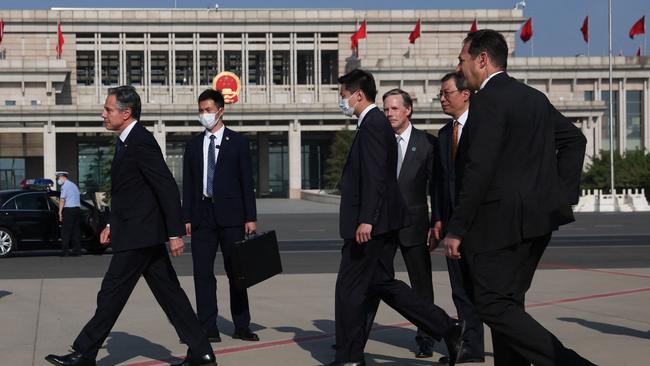
“The Chinese expect that there will be further US technology sanctions,” said David Dollar, a senior fellow at the Brookings Institution and a former World Bank representative in Beijing. “Part of the Chinese willingness to meet with Blinken and to reopen lines of communication is playing to Europe and other American allies and showing that China is willing to co-operate and stop the downward spiral.” That, Dollar said, could “reinforce European reluctance to go full in with the US on tech competition with China.” Blinken spoke with his counterparts from Japan and South Korea during his journey to Beijing, part of an effort to work with US regional allies on China, a senior State Department official said.
Going into this year, both Beijing and Washington were looking to kickstart dialogue over geopolitics, economic, trade and other issues to stabilise the relationship. Then, a suspected Chinese spy balloon crossed North America before the US shot it down in early February, sending relations back into a downward spiral.
The balloon incident caused Blinken to postpone a scheduled visit to China that was supposed to be the start of a series of high-level exchanges.
In the months since, tensions between the two powers have continued to grow. Beijing was especially infuriated by what it saw as an attempt by Washington to sabotage its effort to repair its relations with Europe when Wang Yi, the top Chinese foreign-affairs official, travelled to Munich in mid-February for a high-profile security conference, according to people who have consulted with Chinese authorities.
At the Munich conference, Blinken said the US had intelligence that showed China was considering sending weapons to Russia to assist its war on Ukraine -- just as Wang was trying to reassure the Europeans of Beijing’s desire for peace. A meeting between Blinken and Wang on the sidelines of the conference went badly, according to people familiar with the matter, with the secretary of state taking Beijing to task over its support for Russia during its Ukraine war as well as the surveillance balloon.
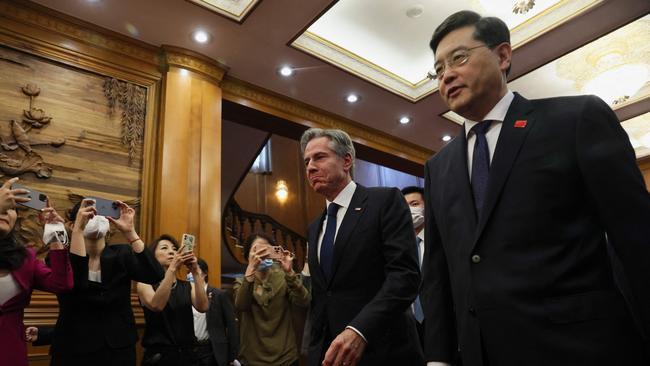
Since then, China had repeatedly rebuffed US requests for high-level talks and blamed all problems between the two nations squarely on Washington.
During a press conference Friday in Brussels, Defense Secretary Lloyd Austin said that he hadn’t reached out to his Chinese counterpart since they shook hands, but didn’t meet, at the Shangri-La Dialogue in Singapore earlier this month. The US defence chief said he is open to resuming communications between the two military leaders.
“The door is open. My phone line is open,” Austin said. “I think it’s important that countries with significant military capacity and capabilities have the means to talk to each other so that we can manage potential crises and, and make sure that things aren’t allowed to unnecessarily spiral out of control.” So far, Beijing has been more interested in having senior economic officials engage with their American counterparts amid a deepening slowdown in the Chinese economy. Last month, Xi sent his commerce minister to Washington for a dinnertime meeting with his US counterpart, Gina Raimondo -- the first cabinet-level meeting in Washington between the two countries during the Biden administration. Raimondo and Treasury Secretary Janet Yellen have both said they hope to visit China as part of the US effort to maintain high-level communications.
Today I was glad to meet with the US-China Business Council’s Board of Directors to discuss the U.S.-China economic relationship. https://t.co/LFaxpTj7bo
— Secretary Janet Yellen (@SecYellen) June 8, 2023
Beijing has had to explain to the Chinese public why senior leaders are pivoting to welcoming the secretary of state after having dragged their feet on rescheduling Blinken’s visit since the balloon incident. To that end, it has sought to paint the US as the eager party.
In particular, a tersely worded official account of a Wednesday phone call between China’s Qin and Blinken, which took place right before both sides announced Blinken’s trip to Beijing, said that Qin urged the US to respect “China’s core concerns,” such as its sovereignty claims to Taiwan, “stop interfering in China’s internal affairs, and stop harming China’s sovereignty, security and development interests in the name of competition.” Ryan Hass, a former national-security adviser on China and Asia under the Obama administration, said he expected the Chinese media to continue to be “uncharitable” to Blinken before and after his visit.
“It’s going to be a test for Secretary Blinken and his team to tune out the noise and focus on the message that the Chinese are conveying behind closed doors,” Hass said.
--Nancy A. Youssef contributed to this article.
Write to Lingling Wei at Lingling.Wei@wsj.com and William Mauldin at william.mauldin@wsj.com
Wall Street Journal

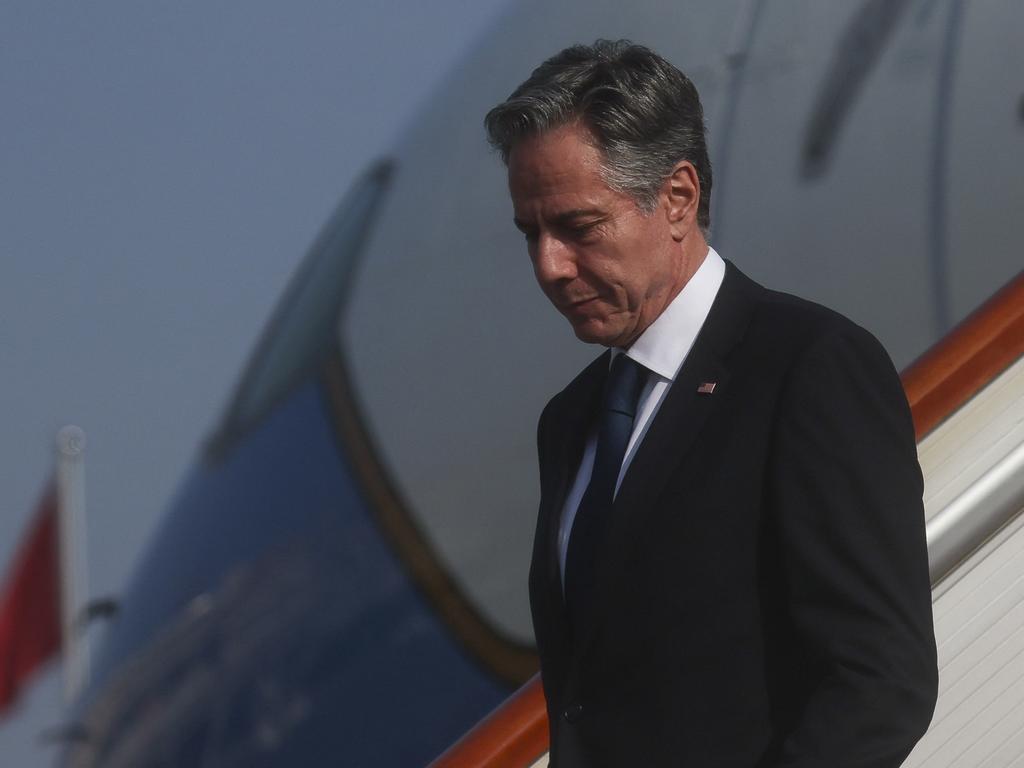
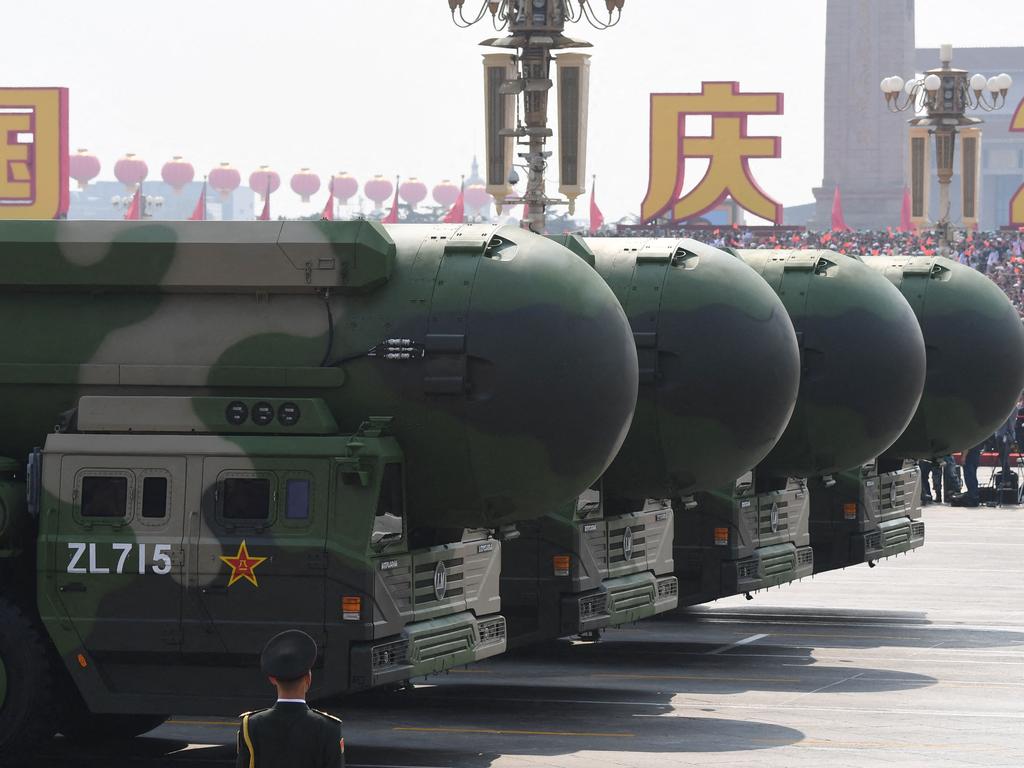
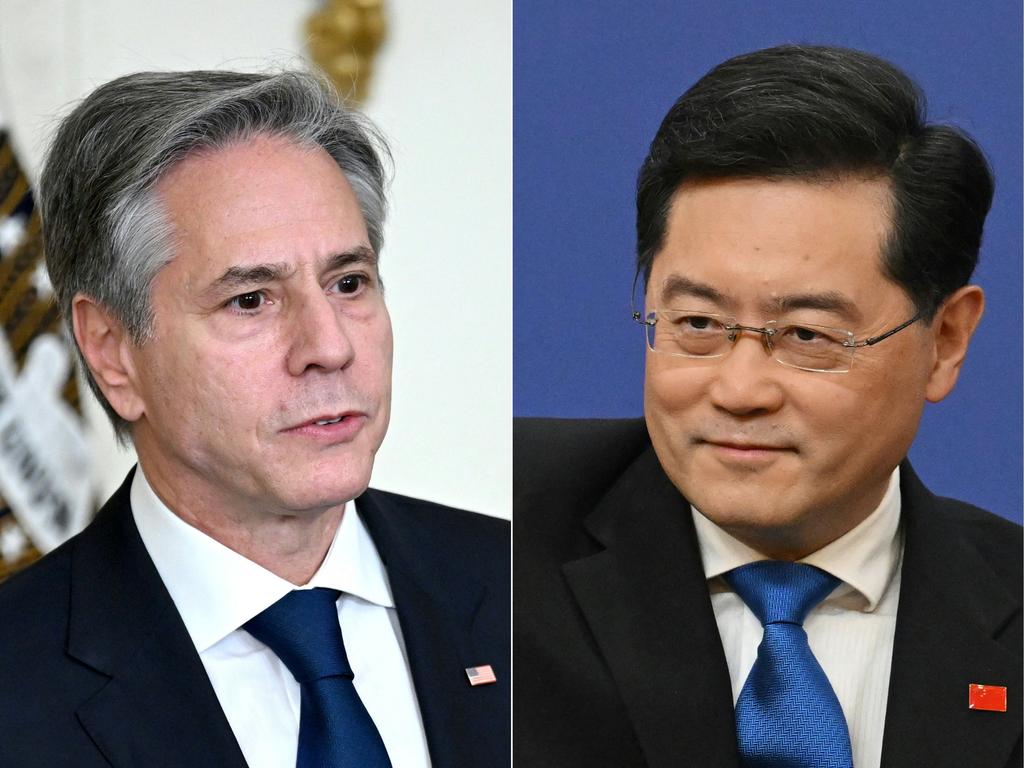



To join the conversation, please log in. Don't have an account? Register
Join the conversation, you are commenting as Logout